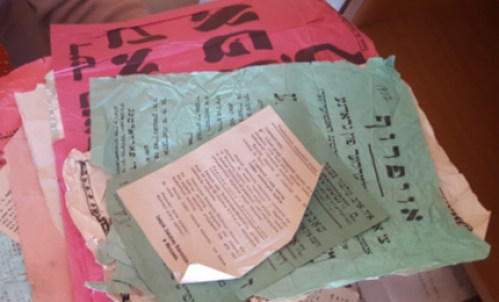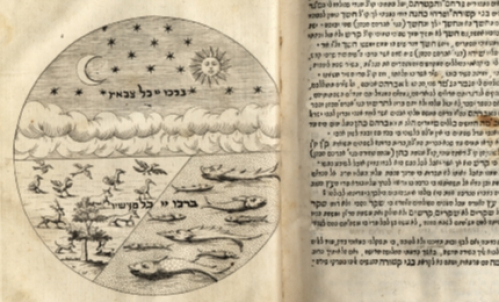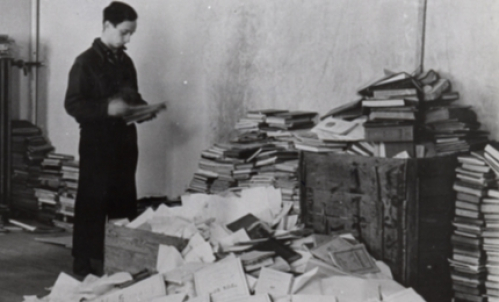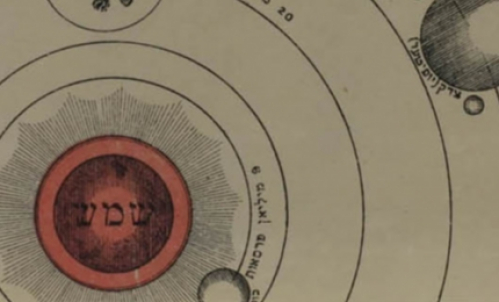“A Beautiful Prayer To Be Recited After Childbirth”: Prayers By and For Women
by ROBERTA NEWMAN
There were few female authors in the early history of Yiddish literature. A notable exception to the rule is the genre of tkhines (supplications), private devotions and prayers, which were intended primarily for use by women and were often written by women. These slim volumes, sometimes littler more than pamphlets, were popular and often reprinted.
Tkhines first emerged in the 16th-17th centuries as printed books became more available. They included prayers to be recited for Sabbaths, festivals, fasts, and New Moons; for separating and burning a small portion of the dough of the bread for the Sabbath; hadlakat nerot, kindling the Sabbath and festival candles); nidah, marital separation during menstruation followed by ritual immersion; for pregnancy and childbirth; and for visiting the cemetery. They can be seen as an expression of the mystical pietism that was on the rise in Jewish communities in Europe at the time.
This book from the National Library of Lithuania combines a collection of tkhines related to childbirth with the grace said after the celebratory meal following a bris (circumcision ceremony). It was printed in Vilna in 1837 and its second title page notes that its author is “Sore [Sarah] the midwife, daughter of our teacher Kadesh.” In addition to prayers to be said before and after childbirth, there are also prayers that can be said by pregnant women and even barren women.
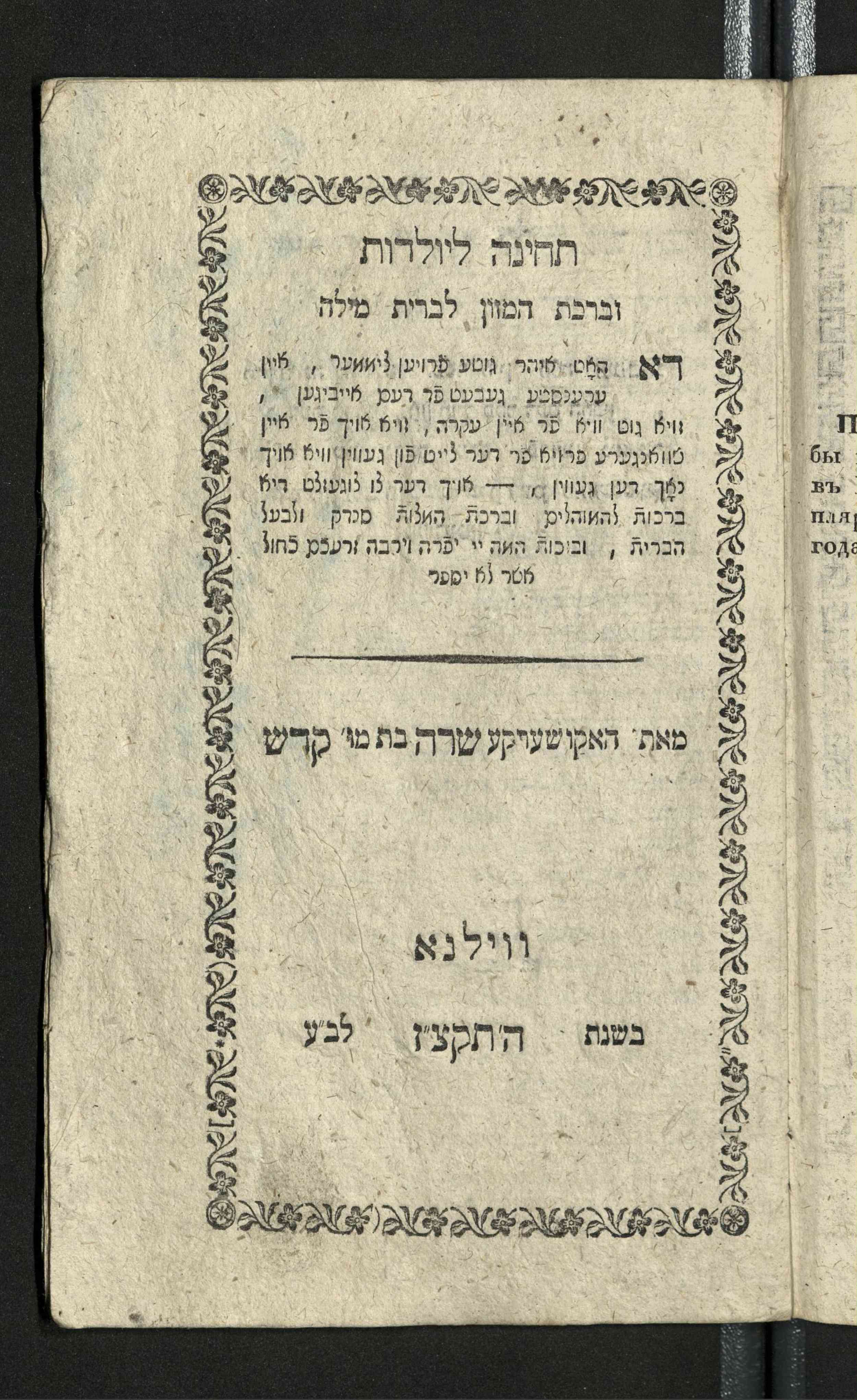
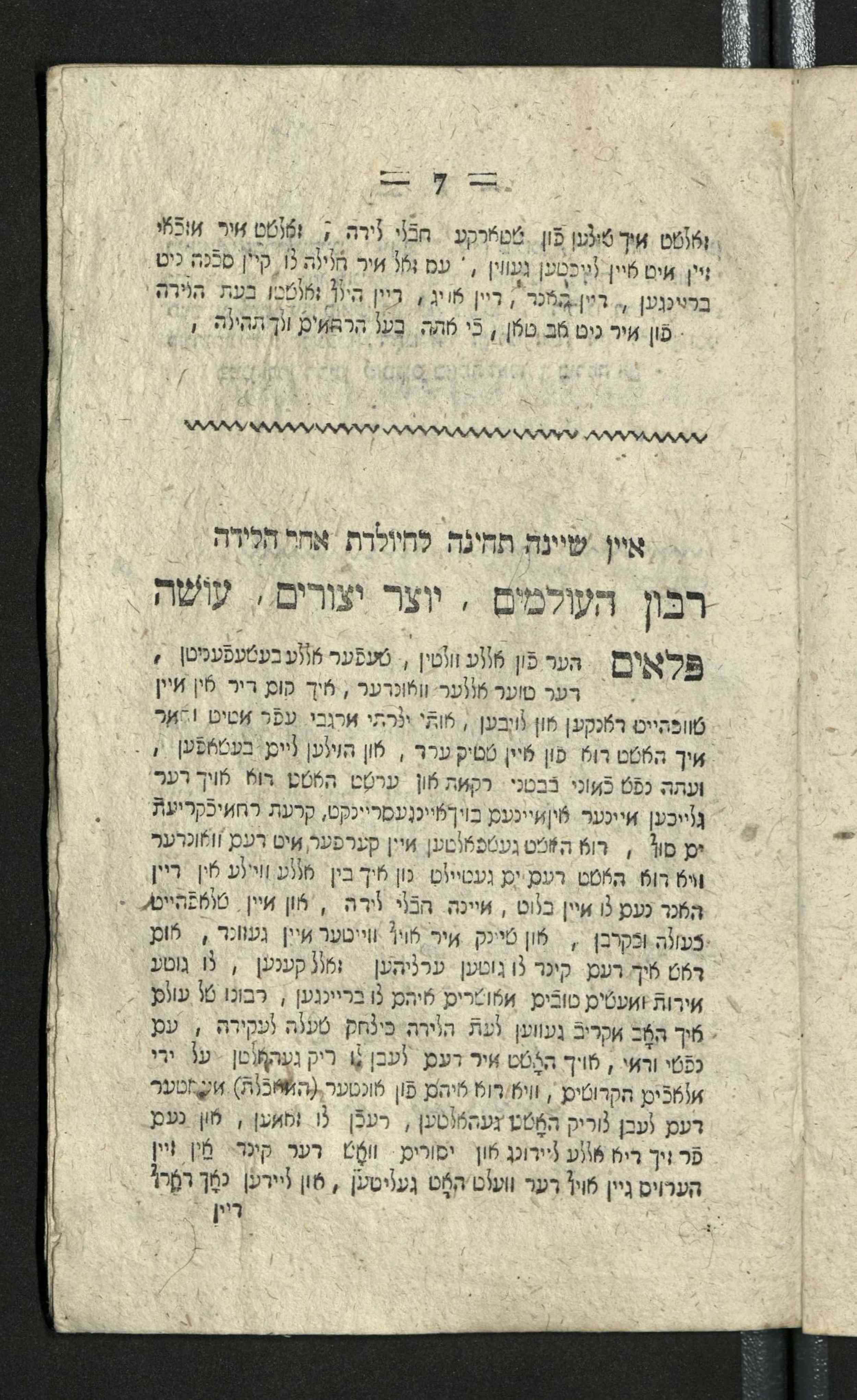
This prayer to be recited after childbirth pairs Hebrew with glosses into Yiddish.
[Partial translation] Ruler of all worlds, creator of all creations, author of all wonders. I come to You in my time of weakness to thank and praising You. You created me from a piece of earth and lump of clay and now You have done the same in my womb; You have split open my body wondrously like You did the sea. Indeed, I was in Your hands the entire time. Accept my blood, my labor pains, and my weakened state as an offering and a sacrifice and return me to good health so that I can raise the child well so that he can develop good qualities and perform good deeds to bring him contentment. Master of the Universe, during my childbirth, I was like Isaac ascending to the sacrifice and You granted me, too, life, through the help of holy angels, as You spared him the knife and redeemed his life.
This is one of the thousands of books digitized for the Vilna Collections project, which is bringing together in one place a wealth of materials related to Jewish domestic life in Europe before the Holocaust. They include books of tkhines like this one; Yiddish translations of the bible for women; early Yiddish novels whose readership was primarily women; the records of Jewish girls’ schools and Jewish women’s organizations; games played by girls; and folk sayings and folklore related to women. Together, they provide an unparalleled resource for the study of Jewish women and family life.
Roberta Newman is YIVO’s Director of Digital Initiatives.
